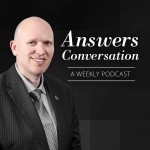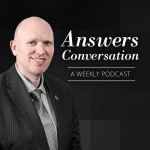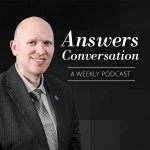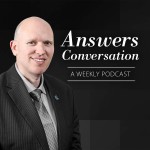Click here to listen. On this episode of ID the Future, Casey Luskin addresses the question: Is intelligent design science? While the precise definition of “science” has long been debated, most would agree that there are certain qualities that clearly define some ideas as science. Luskin examines the theory of intelligent design by this criteria, showing how ID uses the scientific method, undergoes peer review, and does not require non-natural causes.
By Creation Moments Dung beetles may not be a very pleasant subject, but after all, someone has to do the housekeeping. So God created what man has classified into 30,000 species of dung beetle. Many will form their finds into a ball about the size of a croquet ball and roll it home for the wife and kids. Others tunnel beneath a find and set up housekeeping there. read more …read more Read more here: Creation Moments
By Creation Moments Did King David go to the mall? Malls or shopping areas are hugely popular today. Archaeologists are now asking whether shopping malls originated in the 11th century BC. read more …read more Read more here: Creation Moments
By Creation Moments You may never see a troop of monkeys traveling from city to city to perform Shakespeare, but some researchers now believe that monkeys do, indeed, develop culture. This unexpected discovery does not support evolution. Rather, it shows how the creation itself reflects the nature of our Creator. God’s very act of creation was an application of His knowledge to impress order on the creation. read more …read more Read more here: Creation Moments
Listen Now. On this episode of ID the Future, Casey Luskin interviews Dr. Jonathan Wells about a recent article that claims that the human genome is full of useless, non-functional DNA. Dr. Wells explains the concept of “junk DNA,” and why there is such a stark disagreement between those who say our genome is at least 80% functional, and those who say it’s only 8.2%–and how we can know who to listen to.
By radio@answersingenesis.org (Steve Ham) …read more Read more here: Answers Conversation
By Creation Moments How important are fathers to their children? First of all, the role of father was given to us by God. But over the last several decades, some have tried to redefine or redesign the family in a way that makes fathers unimportant or unnecessary. Numerous studies have shown what happens when we do this. read more …read more Read more here: Creation Moments
By Creation Moments Since God is the Author of all language, we shouldn’t be surprised to find many and varied forms of communication among the creatures He made. read more …read more Read more here: Creation Moments
Listen Now. On this episode of ID the Future, Andrew McDiarmid talks with biologist Ann Gauger about the ability of biology to continually surprise us–even when we think the science is settled. Dr. Gauger discusses some scientific “facts” that have since been disproved, and also reflects on her own experiences as a student, and later as a researcher, as she has realized that life is much more sophisticated than we could have imagined.
By Creation Moments The abundance and variety of living things that God made continues to amaze scientists. All of us learned in school that bacteria are too small to see without a microscope. That’s why, when scientists studied a newly discovered type of bacteria that is visible to the naked eye, they couldn’t believe it was bacteria! More study convinced them that the sulfur pearl of Namibia is indeed the largest known bacteria. read more …read more Read more here: Creation Moments
Listen Now. Part 2 On this episode of ID the Future, Dr. Michael Behe continues his conversation with Research Coordinator Casey Luskin about the evolution of Chloroquine resistance, and how it shows that there can be limits to the extent to which complex traits can evolve. They discuss recent findings on what is required to cause Chloroquine resistance in malaria–findings that confirm a key inference in Behe’s The Edge of Evolution that Darwinists rejected, and even slandered.
Listen Now. On this episode of ID the Future, Casey Luskin interviews microbiologist and immunologist Donald Ewert about his previous work as associate editor for the journal Development and Comparitive Immunology, where he realized that the papers published were comparative studies that had nothing to do with evolution at all. Listen in to learn how, in Dr. Ewert’s words, “evolutionary theory doesn’t contribute to experimental biology.” Donald L. Ewert is a research immunologist/virologist who spent much of his career studying the molecular and cell biology of the immune system, as well as theories about its evolution. Dr. Ewert received his [More]
By Creation Moments The tropical looking flower Virginia Meadow Beauty offers some rare tricks for those who would pollinate it. A honeybee can poke around the flower all day and never get any pollen from the gaudy pink flowers. In fact, researchers report that honeybees don’t seem to know what to do with the flowers. Rather, the Virginia Meadow Beauty is pollinated by bumblebees, not honeybees. read more …read more Read more here: Creation Moments
By Creation Moments We have all heard reports of astronomers claiming that they have discovered a planet orbiting some nearby star. Each announcement results in speculation about whether there is intelligent life on the newly discovered planet. Lost is the fact that some planets are larger than Jupiter and made of gas. read more …read more Read more here: Creation Moments
Listen Now. On this episode of ID the Future Dr. David Snoke continues his conversation with Casey Luskin on his recent paper on systems biology and how it relates to intelligent design. Snoke discusses the assumptions made by systems biology, and the different predictions made by Darwinism and intelligent design–especially in the context of junk DNA and useless vestigial parts.
Listen Now. On this episode of ID the Future, Dr. David Snoke talks with Casey Luskin about his newly published paper, “Systems Biology as a Research Program for Intelligent Design.” Dr. Snoke explains what systems biology is and how it arose, and looks and how the approach, putting intelligent design concepts into practice, has seen successful results.
By Creation Moments New findings about how the human nose works may help explain why a world that was perfect when it was made has come to have so many stinky things in it. Humans and mammals hold the record among all creatures with about 1,000 genes for odor receptors. But with only 1,000 different kinds of odor receptors, how is it we can smell over 10,000 different kinds of scents? read more …read more Read more here: Creation Moments
By radio@answersingenesis.org (Steve Ham) …read more Read more here: Answers Conversation
By Creation Moments Climate researchers are developing more complex computer models in an effort to discover the effects of climate changes. One unexpected conclusion is that greenhouse warming of the Earth may not be happening; even if it is, it may not be a bad thing. Researchers have also had to admit that the natural climate changes of the Earth are much wider than originally thought. read more …read more Read more here: Creation Moments
By Creation Moments With the creation of Adam and Eve, God also created the marriage relationship and blessed it. God knows how we are made. He knows how we work. And He had all that in mind when He designed the marriage relationship. For this reason, one would expect that trying to fashion a family by simply living together would result in less happiness than when properly married. read more …read more Read more here: Creation Moments
Listen Now. On this episode of ID the Future, Rob Crowther interviews Casey Luskin about his recent article, “The Constitutionality and Pedagogical Benefits of Teaching Evolution Scientifically,” published in the University of St. Thomas Journal of Law & Public Policy. Luskin shares from his research of the problems facing American science education — how students are not inspired to pursue science and not taught how to think like scientists — and the solution of inquiry-based science education.
By radio@answersingenesis.org (Steve Ham) …read more Read more here: Answers Conversation
By radio@answersingenesis.org (Steve Ham) …read more Read more here: Answers Conversation
By Creation Moments The Bible says that when the flood waters came upon the Earth, all living things that have the breath of life were killed. While many of them drowned, some were encased in mud while still alive, as some fossils show. What they all had in common is that they died from lack of oxygen. read more …read more Read more here: Creation Moments
By Creation Moments Astronomers who believe in evolution tell us that the stars formed when gas in a nebula began to gather due to gravity. Eventually, that gravity became strong enough to collapse the gas into a star. read more …read more Read more here: Creation Moments
By radio@answersingenesis.org (Steve Ham) How Is the Gospel Going Forward in Arabic-Speaking Countries? …read more Read more here: Answers Conversation
By Creation Moments Charles Darwin’s ignorance of geology, a science he never studied, probably resulted in the biological errors he made in formulating his theory of biological evolution. read more …read more Read more here: Creation Moments






























